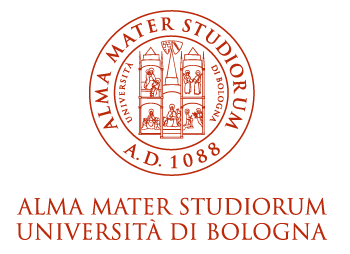Federica Guglielmo (Liverpool School of Tropical Medicine)
from 04 April 2022 at 17:00 to 07 April 2022 at 18:45
Aula Specola and ONLINE
What is the truth? Anthropology’s relationship with issues of truthfulness has always been problematic. Despite being called as expert witnesses in court hearings, anthropologists have historically been more concerned with what makes truths rather than what they might be, and with how these relate to concepts of ‘order’, ‘purity’, and ‘goodness’. Early works on witchcraft and biomedicine, its modern twin, have recently taken a backseat in favour of the inclusion of the political processes that led to the existence of ‘post-truth’ societies.
This seminar series explores the relationship between power, truth, and the ability to sanction. It draws on apparently unrelated contexts (from post-genocide Rwanda to a vector biology department in Liverpool) to illustrate the ordinary working of truth-making processes and their interconnection in local and global spheres. Each seminar employs an ethnographic example to bring to light the micro-practices of power that constitute broader relationships of power between different actors and at different levels – from individuals to countries. In doing so, the series aims to provide the students with an epistemological tool to understand socio-political phenomena beyond their immediacy and to frame them through the interdependence of power, legitimacy, and the ability to sanction.
Structured in four days, the plan of the seminar will follow a cyclic structure while analysing case-studies of broad inspiration. We will discuss the concept of objectivity and its production within a ‘scientific’ endeavour, addressing notions of data reliability and generalisability (Day 1) before moving to the application of objectivity to the definition of pathologies, and to the intricate relationship between bodily signs and collective identities (Day 2). The lives of medical data will be further expanded upon drawing on the case of the British pan-/pingdemic, exploring the prioritisation of pollical and economic reason over epidemiological data (Day 3). Finally, we will think through the epistemological tension concerning the definition and investigation of the truth within the discipline of anthropology.
The reading list below will provide you with a broad analytical framework for the case studies; some items, listed under ‘Optional’, are suggestions for those of you who might be interested in exploring the topics at hand in greater depth. Furthermore, each day will have its own readings, which I encourage you to prepare before the seminar.
The list of readings below might be subject to minor changes. If so, the changes will be communicated to the attendees at least two weeks before the seminar.
Barth, F. (2002) ‘An Anthropology of Knowledge’, Current Anthropology, 43(1), pp. 1–18. doi: 10.1086/382250.
Porter, T. M. (1995) Trust in numbers. The pursuit of objectivity in science and public life. Princeton University Press. Introduction and Chapter 1.
Latour, B. and WooIgar, S. (1986) Laboratory Life. Second edi. Princeton: Princeton University Press. Chapter 1.
Thomas Kuhn, Philosphy of the Humanities series. Faculty of Humanities, University of Leiden:
Normal Science (9:23) https://tinyurl.com/yhkzerhhScientific Revolutions (9:24) https://tinyurl.com/yggc6hgfIncommensurability and Progress (7:46) https://tinyurl.com/yjbug9wd
Biruk, C. (2018) Cooking Data. Culture and Politics in an African Research World. Duke University Press.
Fourie, C. (2018) ‘The trouble with inequalities in global health partnerships’, Medicine Anthropology Theory. Edinburgh University Library, 5(2), pp. 142–155. doi: 10.17157/mat.5.2.525.
Kuhn, T. S. (1970 [1962]) The structure of scientific revolutions. Second edi. Chicago University Press.
Metzl, J. and Kirkland, A. (2010) ‘Against health’. New York University Press. Chapters 4&6.
Yildiz, A. A. and Verkuyt, M. (2011) ‘Inclusive Victimhood: Social Identity and the Politicization of Collective Trauma Among Turkey’ s Alevis in Western Europe’, Peace and Conflict: Journal of Peace Psychology, 17(3), pp. 243–269. doi: 10.1080/10781919.2011.587175.
What turns data into information? How are data collected in one specific province generalised to describe an entire continent? What is the difference between anecdotal and scientific evidence? A look into the scientific production of truth through the analysis of MIRA, an interdisciplinary collaborative project on malaria persistence in Africa.
References
In the aftermath of the 1994 genocide, humanitarian aid exported the diagnosis of post-traumatic stress disorder in Rwanda to address social suffering. Twenty-five years later, the label of PTSD came to identify victims and perpetrators of the violence, replacing ethnic labels and crystallising socio-economic hierarchies.
References
How do data become data? And what data come first?
On July 19th, 2021, England celebrated ‘Freedom Day’, when the government lifted virtually all COVID-19 restrictions for the general public. The event roughly coincided with a spike in self-isolation requests delivered by the National Health Service through the Track & Trace app. Baptised after the ‘ping’ of the app’s notification, the ‘pingdemic’ resulted in 1.73 million individuals isolating, disrupting public and private sectors—including essential services such as healthcare, food provision, transports. Images of empty supermarket shelves reminded of the initial stages of the COVID-19 pandemic; services like pubs and restaurants were heavily hampered. The ‘pinging’ model attracted harsh criticism in a climate of perceived return to normalcy. The English government responded by having the Track & Trace app revised to decrease its sensitivity, before abolishing the need to self-isolate from August 16th.
References
The relationship of anthropology with the ‘truth’ and its moralities is epistemologically problematic. Anthropologists are more concerned with what is perceived as the truth than with its establishment. In this last seminar, we will discuss how anthropologists have related to issues of truthfulness, why it matters for the future of the discipline, and why it doesn’t.
References
